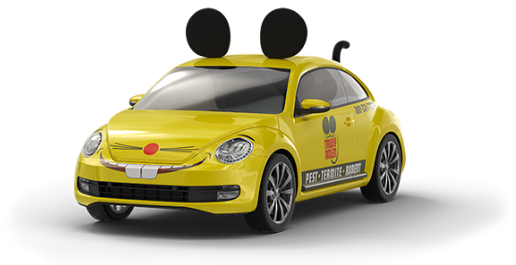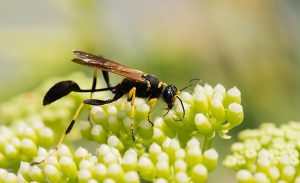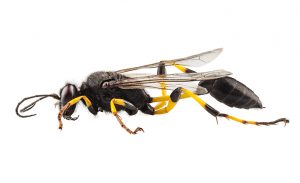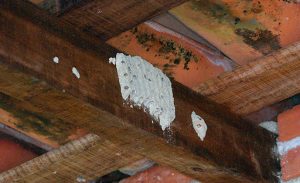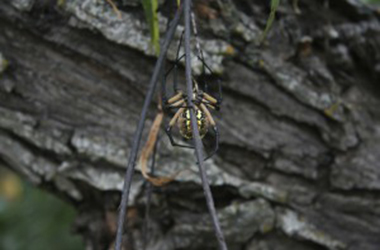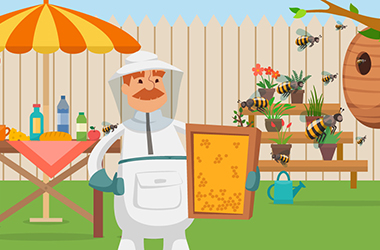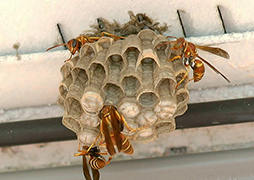
Mud Dauber Facts
- Name: Mud Daubers consist of two families, Sphecidae and Crabronidae; they are also referred to as Dit Daubers, Dirt Dobbers and Dirt Divers.
- Size: approximately 3 cm in length
- Appearance: long, slender bodies with threaded waists
- Benefits: help with insect and spider control
Mud Dauber Behavior
Solitary wasps, mud daubers do not form social colonies. Raising two generations annually, female mud daubers build their mud nests, attaching them to different surfaces depending on the type of mud dauber:
- Organ pipe mud daubers
In the Crabronidae family, organ pipe mud daubers build elegant nests of connecting cylindrical tubes resembling the pipes or flutes of a pipe organ. Female organ pipe daubers build these unusual and striking nests on walls, bridges, cliffs and caves on vertical, as well as horizontal faces. - Black and yellow mud daubers
In the Sphecidae family, black and yellow mud daubers construct nests of cylindrical tubes and then smooth the tubes over to make one, round-shaped nest. Because they lay one egg per nest, black and yellow mud daubers usually build several nests and plaster over the units to form one larger, urn-shaped nest attached to corners, crevices or cracks in buildings. - Metallic-blue mud daubers
In the Sphecidae family, metallic-blue wasps utilize abandoned nests of other mud daubers, especially black and yellow mud dauber nests. Repurposing and reconditioning nests by applying water to the nests, blue mud daubers gather food for their young that includes black and brown widow spiders. Both black and yellow and metallic blue mud daubers frequently occupy the same nest site areas, such as porches and barns.
- How to Get Rid of Wasps
- Infestation
- Bites and Treatment
4 Seasons Pest Control

Satisfaction Guarantee
What it includes*
-
Ants
-
Crickets
-
Fleas
-
Mice
-
All Roaches
-
Scorpions
-
Spiders
-
Ticks
-
Wasps
-
Other*
